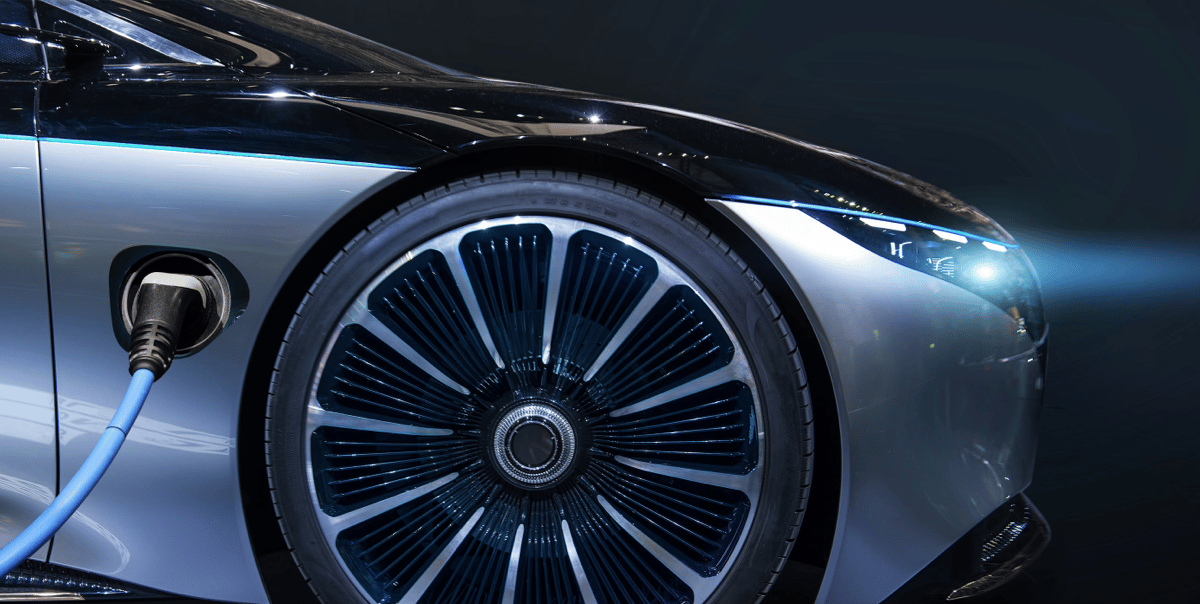A Look at New Electric Vehicle Model Rollouts

6 Min. Read
Electric vehicles are taking the U.S. automotive market by storm. New model rollouts seem to be announced monthly, and major auto manufacturers have finally joined the race to net zero. With these apparent trends, we’ll have EVs of all shapes and sizes — from light-duty family vehicles to muscle cars and pickup trucks, all vying for charger access or proudly being charged at home.
Growing Sales and Demand
The initial consumer hesitation to embrace vehicles that run on electricity has faded, and demand for EVs is growing rapidly. The global EV stock topped 10 million in 2020, a 43% gain from the previous year. In spite of the pandemic and shortages of new car parts, EV sales increased 160% during the first six months of 2021 compared to the prior year.
While 26% of new sales during the first half of 2021 were EVs globally, the U.S. lagged behind, with EVs accounting for only 3% of sales. The White House proposed a target of 50% vehicle electrification by 2030, which several automakers are committed to meeting. Political inducements, tax incentives and continued media attention on building a national charging infrastructure should help increase demand.
However, one of the most compelling enticements for new car buyers to go electric will be the astounding number of EV models hitting the marketplace in the next year or two. Nearly all the current auto manufacturers and some new ones, inspired by the success of Tesla, recognize that the EV market will be their most important (and lucrative) endeavor as the global auto market moves toward a zero-emissions future.
15 EVs to look forward to
The burgeoning EV market will have something available for everyone’s taste, and at a variety of price points. The rollout of countless new models in the coming months and years will be exciting news for car consumers. Here are some of the electric vehicles soon to be displayed in local showrooms and cruising on the interstate:
- Audi Q4 E-Tron. Audi is expanding its E-Tron line with the Q4 E-Tron, a compact electric SUV designed to merge performance and practicality. The Q4 E-Tron is the first Audi model to offer an augmented reality heads-up display that provides real-time vehicle information within the driver’s line of sight.
- BMW i4. BMW is planning two versions of the BMW i4, the automaker’s new all-electric midsize four-door sedan with spacious seating. The eDrive40 will feature 335 hp, rear-wheel drive and a range currently estimated to top 300 miles. The all-wheel-drive M50 promises 536 hp and acceleration from 0 to 60 mph in under four seconds. However, its range on a charge is 245 miles.
- Chevrolet Bolt EUV. The new Chevy Bolt EUV builds on the company’s experience with its previous Bolts. It is a small front-wheel-drive SUV, but is longer and has more leg room for passengers. Both the Bolt EV and EUV have the same 200-hp electric motor that drives the front wheels. The EUV range is 247 miles on a charge.
- Dodge eMuscle. Dodge is renowned for its muscle cars (the Demon, Hemi and Hellcat), so it’s not surprising it expects to debut an electric muscle car in 2024. Dodge engineers are planning top performance along with stellar range. However, they have yet to announce details.
- Honda Prologue. Honda plans to offer its first fully electric model in the U.S. in 2024. Through its partnership with General Motors, Honda will use GM EV powertrains and Ultium battery packs in its EVs. The Prologue will be comparable to the rest of its SUV lineup, but move the automaker into the fully electric market.
- Kia EV6. The first Kia designed specifically to be electric is due later in 2021. The EV6 will be offered with different powertrain configurations, and in rear- and all-wheel-drive options. The EV6 is compatible with 400- and 800-volt fast-charging stations in public places, and is even capable of serving as an emergency power source for your home. The EV6 is the first of several new EVs from the Kia (and sister brand Hyundai) Electric-Global Modular Platform.
- Mercedes-Benz EQB. Mercedes-Benz plans to phase out internal combustion engines by 2030, so it has a wave of EVs rolling out in the next few years. The EQB will be offered configured as a 300 4MATIC with 225 hp and a 350 4MATIC with 288 hp. The all-wheel-drive system uses two motors, one up front and another in the rear.
- Nissan Ariya. Expected late in 2021, Nissan’s Ariya builds on the company’s early EV, the Leaf. The new crossover EV is its first electric SUV. It will have front- and all-wheel-drive models and a choice of standard- and long-range (300 mile) batteries. Nissan claims the vehicle produces precision control by monitoring energy output along with braking response.
- Tesla Roadster. In 2023,Tesla is bringing back a Roadster, which it initially sold when it debuted in 2011. The company is promising the second-generation Roadster will go from 0 to 60 mph in well under two seconds and boast a charge range of 620 miles.
- Volvo C40 Recharge. Volvo is introducing a hatchback version of its XC40 EV SUV, with production starting this fall. The lower rear roofline will be sleeker, but the C40 will have plenty of cargo space. It will also feature all-wheel drive, a dual-motor setup and an estimated range over 200 miles.
The sedan market has drawn the bulk of the EV attention so far, but trucks and crossover vehicles are emerging in the marketplace too.
Here are some of the first trucks hitting the EV market worth noting:
- Ford F-150 Lightning. Ford’s F-Series pickup trucks have long been popular and its new EV version builds on that with impressive power and strong work capabilities. The truck comes in 426- and 563-hp configurations. The standard battery goes 230 miles; the extended-range version goes up to 300 miles. The Lightning possesses a 2,000-pound standard payload capacity and the extended range has a 10,000-pound towing capability. It also has a feature that regular F-Series trucks lack: like the Kia EV6, it can be used to power your house in an emergency!
- GMC Hummer EV. A Hummer EV may seem like an oxymoron, but the electric Hummer five-seat, four-door pickup truck will be both green and off-road ready in 2022. The 5-foot bed has a multifunction tailgate and power tonneau cover. The roof panel is removable, which provides an open-air driving experience.
- Ram 1500 EV. The first all-electric Ram truck, due in 2024, will be similar to the brand’s other half-ton pickups in construction. However, the automaker is promising a range of up to 500 miles, the ability to tow over 10,000 pounds and autonomous-driving capabilities.
- Rivian R1T. Rivian, an American start-up, already has the R1T in production. It comes standard with all-wheel drive, can tow up to 11,000 pounds and offers Level 3 autonomous-driving capabilities. The three battery packs available have ranges of 230, 300 and 400 miles. The company will also be producing electric delivery vans, including 100,000 already ordered by Amazon.
- Tesla Cybertruck. The Tesla Cybertruck created excitement when it was unveiled in 2019 by Elon Musk and is expected to appear on U.S. roads early in 2022. The Cybertruck shown that year was massive and made of a stainless steel exoskeleton designed to eliminate dents and future corrosion. The Cybertruck is projected to have a towing capability of 14,000 pounds.
Getting Plugged In
Deciding which electric vehicle you want (and then possibly waiting for its arrival) should be the hardest part of going electric. The most challenging thing should never be stress over getting an EV charging installation at your residence. Car buyers can buy charging equipment directly from the automobile’s manufacturer. Then what? Finding a qualified electrician who is experienced in EV setups can be hard, so countless electric vehicles owners turn to the pros recommended by several EV manufacturers — Qmerit.
Qmerit makes charging at home easy with vetted installation services across the U.S. and Canada. Qmerit Charge@Home™ installation services start with an upfront pricing estimate using photos and data about your layout and electrical panel. This helps to determine the configuration needed and makes estimating easy in most cases. Then, Qmerit arranges for certified installers who have been thoroughly vetted and specialize in EV charging installation to complete your job.
Qmerit’s extensive network and excellent track record of customer satisfaction and installation safety are why so many EV makers have partnered with the company, including the following:
Enjoy your EV transition with Qmerit managing your installation! Contact us to get started.
